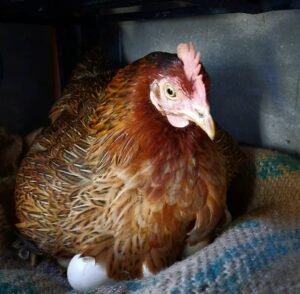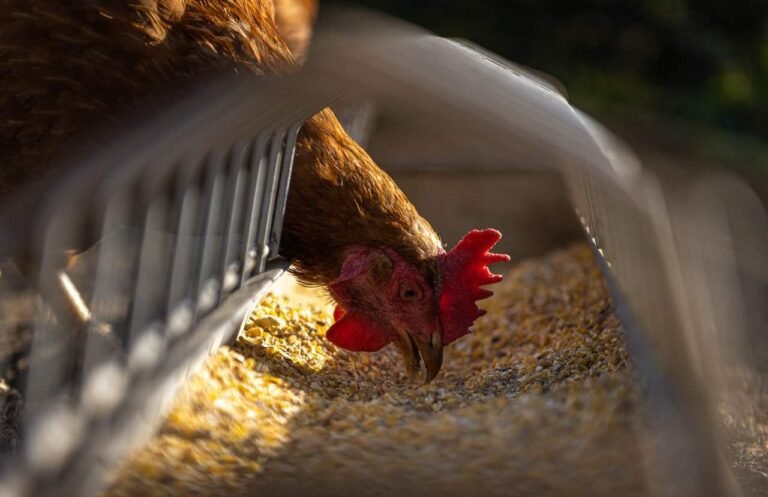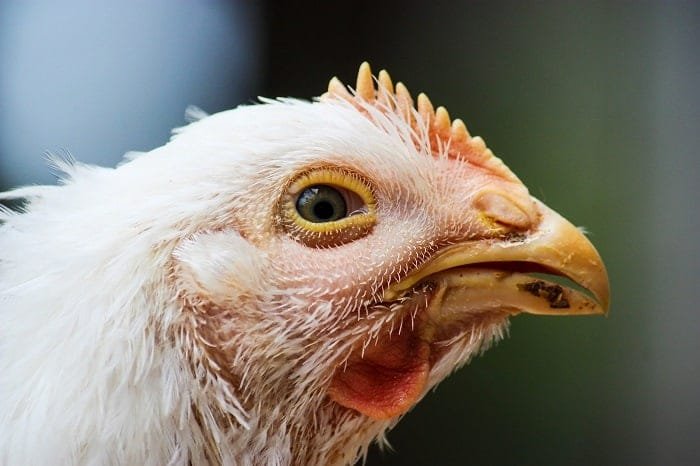How to Hatch Chicken Eggs Step by Step

For farmers who do not own a hatchery, it’s normal for them to wonder the best possible ways to hatch chicken eggs.
On the other hand, most people wonder, do I have to own a hatchery before I hatch my eggs?
How do you hatch a chicken egg without an incubator?
Can I brood my chicken eggs at home?
Is it possible to hatch a chicken from a normal egg?
Okay… calm down.
It’s not weird to wonder how these things work.
Seeking knowledge to guide you in your poultry farm is expedient.
Hence, the reason why we have articulated this piece is to help you hatch your eggs with or without an incubator in your hatchery or just at the comfort of your home.
If that’s what you seek, let’s explore this piece together.
Just before that, check out how many eggs a chicken lays in a week and the 11 common reasons why your chickens are not laying eggs yet.
What you should know about hatching chicken eggs.
Hatching chicken eggs is an extremely rewarding experience for every farmer.
Basically, it requires good planning, dedication, flexibility and observation skills.
Naturally, chickens hatch their eggs by themselves.
All the hens have to do is brood over the eggs by covering them underneath their wings.
Once a hen lays a clutch of eggs, the hen’s instincts take over.
Modern-day chicks find motherhood a big responsibility.
If you notice they are a bit neglectful, that insinuates they will never brood or hatch their eggs.
Or worse, if they hatch them, they may have deformities.
Hatching by natural means takes 21 days to complete.
After 21 days, these eggs produce young chicks.
Hatching occurs by applying natural or artificial heat.
Hence the reason why an incubator is a necessary poultry farm equipment for large-scale hatcheries.

What do I need to hatch chicken eggs?
First, you need to have the right equipment to effectively brood your chicken eggs.
Here’s what you will need to hatch chicken eggs with and without an incubator;
- Hygrometer
- Thermometer
- An incubator (if needed)
- Spray bottle with water
- Cloth towel or newspapers
- Plastic storage bin with lid
- Incandescent gooseneck lamp (if required)
How do I hatch chicken eggs?
Now, we have to dive in to demystify this process.
The last thing any farmer wants is to get super elated for hatch day, only to hatch a few eggs because the chicks died.
If you want to hatch your eggs here’s what to do;
1. Choose the eggs to incubate:
It’s naturally common to think that all eggs are viable to go into the incubator for hatching.
I don’t mean to burst your bubbles but that’s false!!!
Here are the criteria for chicken eggs that you can incubate;
a. The eggs must be fertilized eggs:
Only fertilized eggs have the ability to become chicks.
To get fertilized eggs, you have to pick the eggs laid after your chickens mate.
b. Chicken eggs to be incubated are best for incubation at 7 days of lay:
The eggs to incubate must not be older than 10 days.
Seven days old eggs are best for hatching.
c. The chicken eggs must not be broken:
Ensure the eggs you want to hatch are not broken or have cracks.
You can identify cracked eggs by candling.
2. Maintain optimum incubation temperature:
Once you’ve chosen viable eggs to hatch, it’s time to put them in the incubator.
But before then, you have to set the temperature optimally to ensure the heat is enough to hatch the eggs.
Higher temperatures will cook the eggs and kill the birds.
To avoid that, set the temperature of the incubator between 100°-102° with a still air incubator.
However, if you’re using a forced air incubator, it should be set at 99-99.5°.
Keep in mind that short changes in temperature do not necessarily mean disaster.
But ensure you keep the incubator temperature within the temperature range above.
To modulate the temperature, adjust the temperature by opening and closing the vents.
3. Set the incubator at optimum humidity level:
Humidity is important to hatch your chicken eggs especially in the last days of incubation.
Set the humidity level between 40-50% on days 1-18, then increase it to 50%-60% from 18-21 days.
Low humidity will make the egg lose internal moisture and kill the embryo.
This will result in getting “shrink-wrapped” chicks.
Once this occurs the chicks will be unable to break out from the egg.
High humidity on the other hand can cause condensation to form on the eggshell.
To modulate the humidity, use a digital thermometer to measure the humidity.
4. Put the eggs in the incubator:
Once the incubator is set, place the chicken eggs carefully using a hatcher tray into the incubator.
Carefully drop them to avoid breakage.
Remember, a broken egg is no longer viable for hatching.
5. Turn your eggs at least 3 times a day:
After 3 days of setting the eggs in the incubator, then the eggs at least 3 times a day from days 1-18.
Why?
So that the heat can touch all parts of the eggs.
Turning your chicken eggs an odd number of times each day is important for embryo development.
However, on the 18th to 21st day of incubation, do not turn your eggs again.
This allows the chick to orient itself to break the shell and hatch.
6. Candle your eggs:
Starting from day 7, candle your eggs.
However, if your eggs are darker, you might have to wait until day 10 to candle.
Candling is just a process of looking inside the egg by shining a light through the egg.
To confirm if the eggs are hatching, you will see veins and with time, you will see a chick moving inside.
If by day 10, you only see the yolk, then the egg either wasn’t fertile to start with or the embryo never developed.
And that means you should remove it.
7. After day 21, move the chicks to the brooder:
Hurray!!!
You made it to day 21.
That means you’ve successfully hatched your eggs.
Once the chicken eggs have hatched, it’s time to move the chicks to the brooder.
You can actually let the chicks live in the incubator for up to 3 days if the incubator is not jam-packed.
There in the brooder, set your brooder temperature to at least 95°.
If you notice the chicks are panting, then the temperature is too hot.
Reduce it to avoid overheating.
Now, you have your chicks.
Check out how to take care of day-old chicks and pullets to ensure your chicks grow to maturity and lay eggs for you.
What if you want to hatch your eggs at home?
Is it possible to hatch chicken eggs at the comfort of your home?
Continue reading to find out.

Can I hatch chicken eggs without an incubator at home?
Absolutely!!!
You can hatch your chicken eggs without an incubator at the comfort of your home.
All you have to do is to employ the right techniques and that’s what this section elucidates.
Since it’s an established fact that you can hatch your eggs successfully without an incubator, you need to know the techniques to employ.
Here are other options aside from the use of an incubator to hatch eggs;
- Use heat lamps
- Improvise an incubator like structure using newspaper or the styrofoam ice coolers (that you buy at the grocery store).
- Or you can simply let the hen incubate the eggs for you. If your hens are not broody, and you have a Silkie chicken then you can let them brood your eggs regardless of the chicken breed that lays it.
Employing any of these techniques will help you hatch your eggs without an incubator in your home.
As earlier stated, an incubator is an ideal option for large-scale farmers.
Frequently asked questions about how to hatch chicken eggs.
Is natural hatching Vs artificial hatching: which one is best?
Basically, there is no straightforward answer to that.
It all depends on why and how urgent you need the chicks off from the eggs.
But what we do know is that hens do a perfect job in hatching their young.
However, if the hens aren’t broody (hens like the Faverolles do not like to brood on their eggs) hatching eggs by incubation is a good option.
Therefore, natural or artificial hatching comes in handy depending on the circumstance.
Also, artificial hatching is ideal for farmers who sell day-old chicks.
Is hatching with incubators faster than hens?
Absolutely not!
Whether you’re hatching your chicken eggs with incubators or allowing your hens to do the job, it will take 21 days.
No more, no less!!!
How long does it take for an egg to hatch?
Hatching eggs for chickens usually takes 21 days.
How do I know that a chicken egg is viable for hatching?
Not all fertilized eggs will hatch eggs both by natural or artificial means.
If you’re not sure if an egg is viable to be hatched simply do an egg float.
All you have to do is to put the egg gently in the water, if it floats then it’s not viable.
If it sinks then it’s viable to be hatched.
It’s that simple.
How do I store eggs I want to incubate by putting them in an incubator?
You do not pick an egg once the hens drop it straight into the incubator.
Gathering a lot before incubation is strategic and will save you a lot of stress and preserve heat in the incubator for a while.
To store the eggs, here’s what to do;
1. Store them at room temperature.
Put the eggs in a pointy side down position inside a bowl or carton and store them at room temperature.
This position will protect the air bubble at the fat end.
2. Do not refrigerate.
Ensure you do not put the eggs in the fridge before incubating them.
Of course, this principle applies even if the weather is hot or cold.
These steps will keep your eggs ready and viable for incubation.
Summary
While it might sound a little complicated, you will agree with me at this point that hatching chicken eggs is really easy and fun.
If you have broody hens, just let them do the job.
The fact is Mother Nature does it better than any machine.
However, the incubators or homemade or store-bought facilities will do the job just fine.
Ensure the temperature and humidity is set appropriately so that the chicks can survive inside the eggs.
Do you have any tricks or tips for hatching chicken eggs?
Tell us in the comment section.
References
- 12 Best Chicken breeds for Eggs – chicken breeds for eggs
- When Do Chickens Start Laying Eggs Regularly?
- How Many Eggs Does A Chicken Lay In A Week?
- Fermenting chicken feed – The definitive guide
- 10 Sure Ways To Stop Chickens from Eating Their Eggs [+Bonus]
- 6 Best Chicken Egg Incubators for Chicken Eggs and Other Birds







![How to Take Care of Chickens [Beginners guide]](https://agro4africa.com/wp-content/uploads/2020/10/How-to-care-for-chickens.jpeg)




Interested